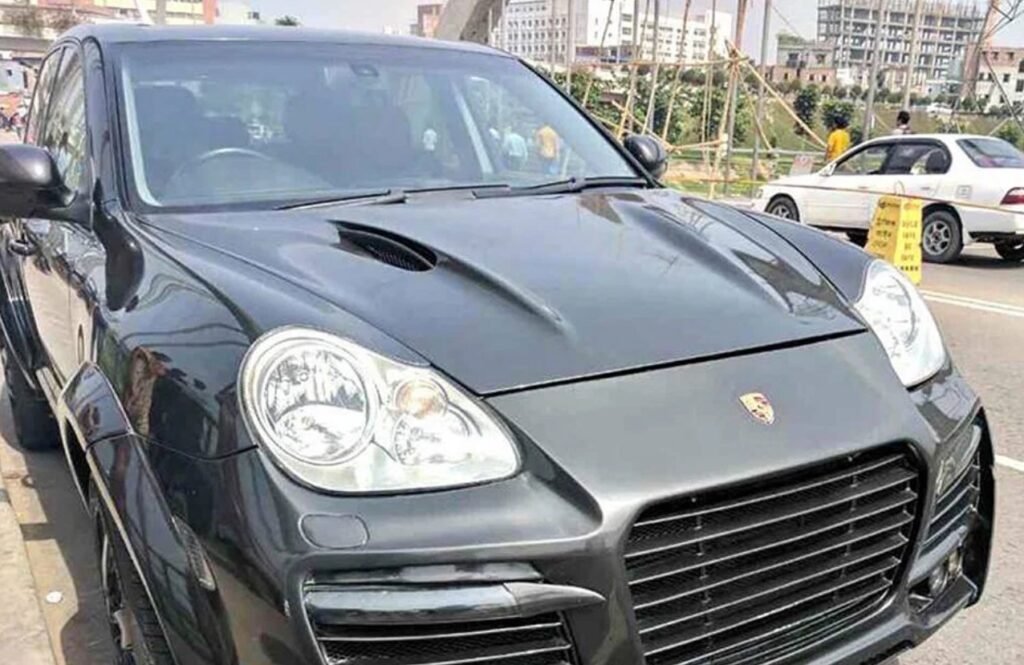The energy division of Bangladesh has come under intense scrutiny after approving the procurement of three luxury vehicles at a total cost of Tk 150 million. This move blatantly disregarded established rules, as each vehicle was allocated Tk 50 million despite their actual cost being under Tk 45 million. The approvals were granted by the boards of Bangladesh Gas Field Company (BGFCL), Bangladesh Petroleum Exploration and Production Company Limited (BAPEX), and Titas Gas Transmission and Distribution Company months before the Awami League government fell on August 5.
Approval Process Raises Red Flags
The approval for purchasing these luxury vehicles was given separately by the boards of BGFCL, BAPEX, and Titas Gas. Even though Tk 150 million was earmarked for the procurement, the actual cost per vehicle should not have exceeded Tk 45 million. This discrepancy has led to suspicions of misuse of funds and potential corruption within the energy division.
“How could they approve such a high budget when the actual cost was clearly lower?” questioned a senior industry analyst. The fact that these approvals were given before the government’s fall suggests possible political maneuvering and favoritism.

Cost Overruns and Budget Violations
The boards of BGFCL and BAPEX acted swiftly, purchasing their respective vehicles shortly after approval. BGFCL acquired a Toyota Land Cruiser Prado (TXL) for nearly Tk 300 million from a private company, far exceeding the allocated budget. On the other hand, Titas Gas Transmission and Distribution Company was unable to complete its purchase before the government change, leaving the approved funds unused.
Table: Vehicle Procurement Breakdown
| Company | Approved Budget (Tk Million) | Actual Cost (Tk Million) | Status |
|---|---|---|---|
| BGFCL | 50 | 300 | Purchased |
| BAPEX | 50 | Not disclosed | Purchased |
| Titas Gas | 50 | Not purchased | Pending due to government fall |
This table highlights the significant overspending by BGFCL and the incomplete purchase by Titas Gas, further fueling the controversy.
Impact of Government Changes
The fall of the Awami League government on August 5 disrupted ongoing projects and halted the procurement process for Titas Gas. Md Nurul Alam, the then secretary of the energy and mineral resources division and board chairman of the three companies, was instrumental in directing these purchases. Shortly after the government change, Alam was made an officer on special duty (OSD), raising questions about his role in the overspending.
“Was this a coordinated effort to secure luxury vehicles for top officials?” wondered a whistleblower within one of the companies. The interim government has since taken steps to investigate these irregularities, but the exact whereabouts of the purchased vehicles remain unclear.
Allegations and Investigations
Allegations suggest that the procurement was meant to provide luxury SUVs for senior officials, circumventing the government’s austerity measures. Nasrul Hamid, a state minister implicated in the scandal, has been evasive and remains unaccounted for since the government’s fall.
Md Nurul Alam defended the purchases, stating, “The vehicles were necessary for the operations,” but his explanation has not satisfied many stakeholders. Janendranath Sarker, chairman of Petrobangla, denied receiving any proposals to buy cars for BGFCL and BAPEX, further complicating the narrative.
“M Tamim, a former adviser of minerals, criticized the board’s actions, saying, ‘There must be some personal interest behind the decision. Proper investigations are needed to uncover the truth.'”
Regulatory Oversight and Compliance Issues
The procurement of these vehicles violated a finance ministry notification issued on August 1, which capped the price of jeeps (not exceeding 2700 cc) for government officials at Tk 14.5 million, including VAT and tax. This regulation is still in effect, making the approved purchase prices illegal.
“How did the boards bypass these clear directives?” questioned an internal auditor. The fact that these approvals were given verbally, bypassing formal channels, indicates a significant lapse in regulatory compliance and oversight.
Consequences and Future Implications
The fallout from this scandal could have far-reaching implications for the energy sector in Bangladesh. Trust in the governance of state-owned enterprises is being eroded, and there is increased pressure for transparency and accountability.
“If the interim government can’t address these issues swiftly, it could lead to more widespread corruption within other sectors,” warned a policy expert. The situation also serves as a cautionary tale for other companies considering similar over-budget procurements.
Moving Forward: Reforms and Accountability
In response to the scandal, there are calls for comprehensive reforms to prevent such misuse of funds in the future. Strengthening the approval processes, enhancing transparency, and ensuring stricter compliance with budgetary constraints are seen as essential steps.
“Reforms must be implemented immediately to restore faith in our institutions,” emphasized a leading member of the opposition party. Additionally, ongoing investigations are expected to bring more details to light, potentially leading to legal actions against those responsible.
